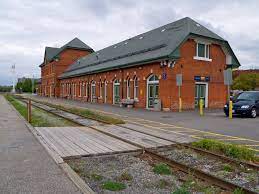Why Our History is an Important Part of Our Future

We accumulate knowledge from our studies of the past. Our history is an important part of our future because it is the story of who we are, where we come from, and can potentially reveal where we’re headed.
Here are a few ways that history can help us understand both ourselves and the world around us:
1. We can comprehend more.
By understanding our history, we can gain a clearer picture of how various aspects of our society works. Learning about how things like technology, governmental systems, and culture worked in the past can helps us recognize what changed to make those factors what they are now.
2. We can better understand society and other people’s culture.
By observing past behaviours, we have access to useful data that creates laws and helps us develop more advanced theories on our society as a whole.
3. We are provided with a unique sense of identity.
One of the main reasons History is still taught in schools is because it can help us understand who we are by evaluating where we came from. Historians have been able to show us how countries, families and cultural groups were formed and how they evolved over time.
On an individual level, by exploring about one’s own family background, we can learn how our ancestors participated in larger world events. Additionally, we can gain a deeper appreciation of how they interacted with the historical shifts that took place within their lifetime. This connect us to our family and give us a sense of “roots”, which is integral to the human experience.
4. We are aided in understanding current events and present-day issues.
Our history is an important part of our future because when we ask deeper questions as to why things are the way they are now, we can gain a better understanding of how past decisions shaped our present-day. By referring to our history, we can hopefully avoid repeating past mistakes in the future.
5. We can develop personal growth and appreciation of our history.

Understanding how past events have impacted the world today can evoke empathy for groups of people whose history may be different. As individuals, by having a clear perspective on the suffering, joy and chaos that created our present-day circumstances, we can experience a stronger sense of appreciation for all that was lost, learned and sacrificed to get us to where we are today.
These are some of the reasons why I believe that preserving pieces of our cultural history is so important. As a community, have a shared history can often be the commonality that helps bring us together, even if we disagree on other things. Passing traditions down through familial generations and having similar shared experiences with our ancestors can create a greater sense of appreciation and respect for our community.
The Ontario Heritage Act: Preserving Our History

Every community in Ontario has its own unique culture and heritage. Every town has places, spaces and stories that enrich it and guide it in its growth and development. These places are integral parts of the identity of our communities, but they also play a significant role in our economic development. By helping to enhance a community’s quality of life, we can strengthen its distinctiveness, stimulate revitalization and attract tourist dollars.
Under the Ontario Heritage Act, municipalities can pass bylaws to formally designate properties of cultural heritage value or interest. Formal designation of heritage properties is one way of publicly acknowledging a property’s heritage value to a community. At the same time, designation helps to ensure the conservation of these important places for the benefit and enjoyment of present and future generations.
Properties can be designated individually or as part of a larger area or Heritage Conservation District.
In Niagara Falls, the Municipal Heritage Committee works collaboratively with the Ontario Heritage Act. Specifically, Regulation 9/06 sets out criteria for determining cultural heritage value or interest.
You can learn more by accessing the Designation Process (PDF) for more information.

Curious to know what properties in Niagara Falls have currently been granted heritage status? You can view the Municipal Heritage Register for information about some of the properties, pictures and location maps.
Do you recognize any of these locations? Do you have any shared history with any of Niagara’s heritage properties?
We Are All Living Histories
All people and cultures are living histories. The languages we speak, as well as our cultures, traditions and religions are all inherited from our past. We even inherit our genetic makeup from those that lived before us. Knowing these connections can give us a basic understanding of the conditions of being human. 
Why our history is an important part of our future is because the more we focus on what connects us, the more respect we can have for each other, which is a key component to learning how to better engage in civil discourse. We will never collectively agree on everything, but having respect for our commonalities allows us the ability to better communicate our differences, which can help us work together to create a better future.
[Source Credit: Information on the Designation Process provided by the Government of Ontario. For detailed information, you can download the Heritage Tool Kit PDF.]
